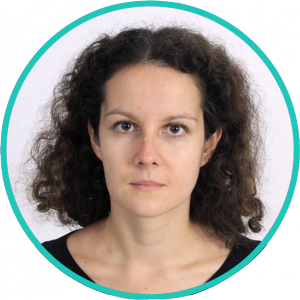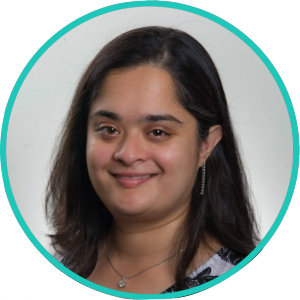 Dr. Xavier Alameda-Pineda is a Research Scientist at Inria Grenoble. He received his PhD in mathematics and Computer Science from Université Joseph Fourier in 2013. His main research interests are machine learning for computer vision and multi-modal fusion with applications to robotics and human behavior understanding. He is the recipient of four paper awards, including IAPR ICPR 2016 and ACM Multimedia 2015. He co-organized a special session at ICMR 2017 and a workshop at ACM Multimedia 2017, on the multi-modal analysis of subjective properties of data. He was Area Chair at ICCV 2017 and Outstanding Reviewer of CVPR 2017.
Dr. Xavier Alameda-Pineda is a Research Scientist at Inria Grenoble. He received his PhD in mathematics and Computer Science from Université Joseph Fourier in 2013. His main research interests are machine learning for computer vision and multi-modal fusion with applications to robotics and human behavior understanding. He is the recipient of four paper awards, including IAPR ICPR 2016 and ACM Multimedia 2015. He co-organized a special session at ICMR 2017 and a workshop at ACM Multimedia 2017, on the multi-modal analysis of subjective properties of data. He was Area Chair at ICCV 2017 and Outstanding Reviewer of CVPR 2017.
 Prof. Adriana Kovashka is an Assistant Professor in Computer Science at the University of Pittsburgh. She received her PhD in 2014 from The University of Texas at Austin, and her B.A. in Computer Science and Media Studies from Pomona College in 2008. Her research interests primarily lie in computer vision, with some overlap in machine learning, information retrieval, natural language processing, and human computation. Her research is funded by two NSF grants and a Google Faculty Research Award. Her research has been published in the top computer vision and natural language processing conferences (CVPR, ICCV, ACL). Adriana has previously organized two workshops, Human-Machine Communication for Visual Recognition and Search (ECCV 2014) and Women in Computer Vision (CVPR 2015). Adriana was also the chair/co-chair of the CVPR Doctoral Consortium (2015-2017).
Prof. Adriana Kovashka is an Assistant Professor in Computer Science at the University of Pittsburgh. She received her PhD in 2014 from The University of Texas at Austin, and her B.A. in Computer Science and Media Studies from Pomona College in 2008. Her research interests primarily lie in computer vision, with some overlap in machine learning, information retrieval, natural language processing, and human computation. Her research is funded by two NSF grants and a Google Faculty Research Award. Her research has been published in the top computer vision and natural language processing conferences (CVPR, ICCV, ACL). Adriana has previously organized two workshops, Human-Machine Communication for Visual Recognition and Search (ECCV 2014) and Women in Computer Vision (CVPR 2015). Adriana was also the chair/co-chair of the CVPR Doctoral Consortium (2015-2017).
 Dr. Miriam Redi is a Research Scientist in the Research and Data team at the Wikimedia Foundation. Her research focuses on content-based social multimedia understanding and culture analytics. In particular, she explores ways to automatically assess visual aesthetics, sentiment and creativity, and responsibly exploit the power of computer vision in the context of web, social media, and online communities. She is the recipient of 2 paper awards, including ICWSM 2015 and ACM ICMR 2016. She co-organized a special session at ICMR 2017 and a workshop at ACM Multimedia 2017, on the multi-modal analysis of subjective properties of data. Miriam got her Ph.D. at the Multimedia group in EURECOM, Sophia Antipolis. After obtaining her PhD, she was a Research Scientist at Yahoo Labs and at Bell Labs in Cambridge, UK.
Dr. Miriam Redi is a Research Scientist in the Research and Data team at the Wikimedia Foundation. Her research focuses on content-based social multimedia understanding and culture analytics. In particular, she explores ways to automatically assess visual aesthetics, sentiment and creativity, and responsibly exploit the power of computer vision in the context of web, social media, and online communities. She is the recipient of 2 paper awards, including ICWSM 2015 and ACM ICMR 2016. She co-organized a special session at ICMR 2017 and a workshop at ACM Multimedia 2017, on the multi-modal analysis of subjective properties of data. Miriam got her Ph.D. at the Multimedia group in EURECOM, Sophia Antipolis. After obtaining her PhD, she was a Research Scientist at Yahoo Labs and at Bell Labs in Cambridge, UK.
 Prof. Devi Parikh is an Assistant Professor at Georgia Tech and a Research Scientist at Facebook AI Research. Her research interests include computer vision and AI in general and visual recognition problems in particular. Her recent work involves exploring problems at the intersection of vision and language, and leveraging human-machine collaboration for building smarter machines. Devi has led the organization of three workshops (at CVPR 2010, 2016, and 2017), co-organized two workshops (at ECCV 2014), and led the organization of a tutorial (at ICCV 2013).
Prof. Devi Parikh is an Assistant Professor at Georgia Tech and a Research Scientist at Facebook AI Research. Her research interests include computer vision and AI in general and visual recognition problems in particular. Her recent work involves exploring problems at the intersection of vision and language, and leveraging human-machine collaboration for building smarter machines. Devi has led the organization of three workshops (at CVPR 2010, 2016, and 2017), co-organized two workshops (at ECCV 2014), and led the organization of a tutorial (at ICCV 2013).
 Prof. Nicu Sebe is Full Professor with the University of Trento, Italy, leading the research in the areas of multimedia information retrieval and human behavior understanding. He was the General Co- Chair of the IEEE FG Conference 2008 and ACM Multimedia 2013, and the Program Chair of the International Conference on Image and Video Retrieval in 2007 and 2010, ACM Multimedia 2007 and 2011. He is/was the Program Chair of ICCV 2017, ECCV 2016 and ICPR 2020, and a General Chair of ACM ICMR 2017. He is a fellow of the International Association for Pattern Recognition.
Prof. Nicu Sebe is Full Professor with the University of Trento, Italy, leading the research in the areas of multimedia information retrieval and human behavior understanding. He was the General Co- Chair of the IEEE FG Conference 2008 and ACM Multimedia 2013, and the Program Chair of the International Conference on Image and Video Retrieval in 2007 and 2010, ACM Multimedia 2007 and 2011. He is/was the Program Chair of ICCV 2017, ECCV 2016 and ICPR 2020, and a General Chair of ACM ICMR 2017. He is a fellow of the International Association for Pattern Recognition.
 Prof. Shih-Fu Chang is the Sr. Executive Vice Dean and the Richard Dicker Professor of Columbia Engineering. His research is focused on multimedia information retrieval, computer vision, machine learning, and signal processing, with the goal to turn unstructured multimedia data into searchable information. For his long-term pioneering contributions, he has been awarded the IEEE Signal Processing Society Technical Achievement Award, ACM Multimedia SIG Technical Achievement Award, Honorary Doctorate from the University of Amsterdam, the IEEE Kiyo Tomiyasu Award, and IBM Faculty Award. He is a Fellow of the American Association for the Advancement of Science (AAAS) and IEEE.
Prof. Shih-Fu Chang is the Sr. Executive Vice Dean and the Richard Dicker Professor of Columbia Engineering. His research is focused on multimedia information retrieval, computer vision, machine learning, and signal processing, with the goal to turn unstructured multimedia data into searchable information. For his long-term pioneering contributions, he has been awarded the IEEE Signal Processing Society Technical Achievement Award, ACM Multimedia SIG Technical Achievement Award, Honorary Doctorate from the University of Amsterdam, the IEEE Kiyo Tomiyasu Award, and IBM Faculty Award. He is a Fellow of the American Association for the Advancement of Science (AAAS) and IEEE.